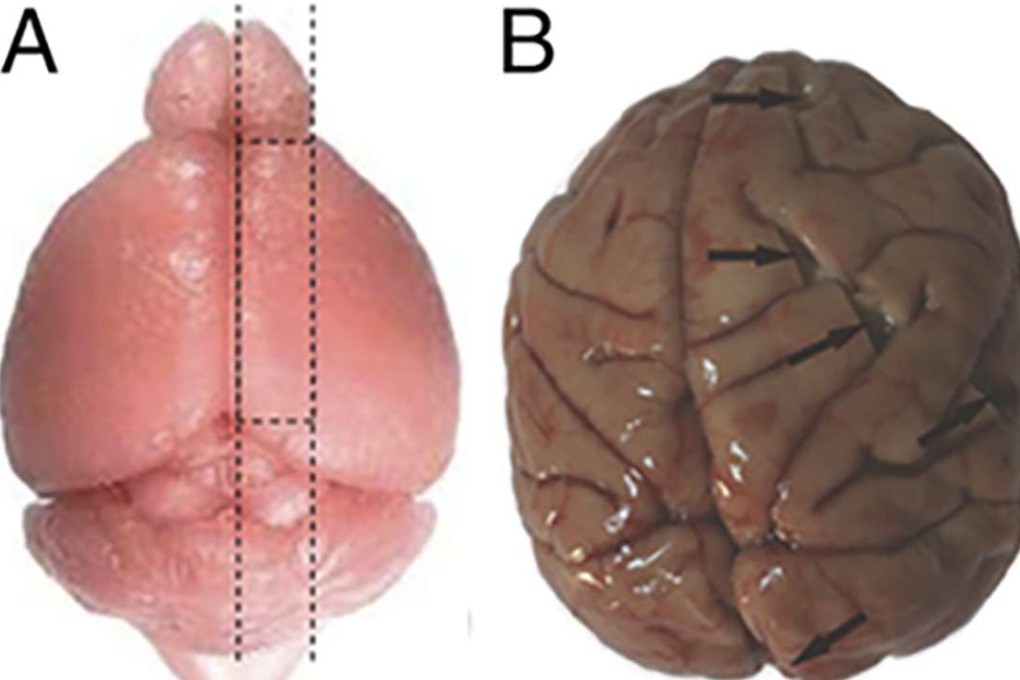Chinese scientists tackle conundrum of why humans are brighter than animals with bigger brains
Answer may lie in our ability to create information-relaying particles using much less energy than other species, making our brains more efficient, researchers suggest

Chinese scientists have suggested a new theory as to why people are so much more intelligent than animals even though our brains are sometimes much smaller than those of other species.
Researchers at the Wuhan Institute of Neuroscience and Neuro-engineering have previously carried out studies backing the scientifically contentious idea that the brain not only processes and passes on information through electrical and chemical signals, but also with photons, a form of tiny particle that can include light.
In their latest study, the researchers said human brains are able to create information-relaying photons using much less energy than other animals, which suggested they are able to operate more speedily and efficiently than those of other species.
The hypothesis that our brain also operates using other mechanisms rather than just electrical and chemical signals has been around for decades.
Its supporters have included the physicist Eugene Wigner, Nobel Prize laureate in 1963 and more recently the eminent physicist Sir Roger Penrose at the University of Oxford.
These theories include the idea that the brain transmits non-electrical particles, a form of physics which also underpins the idea of the quantum computer.